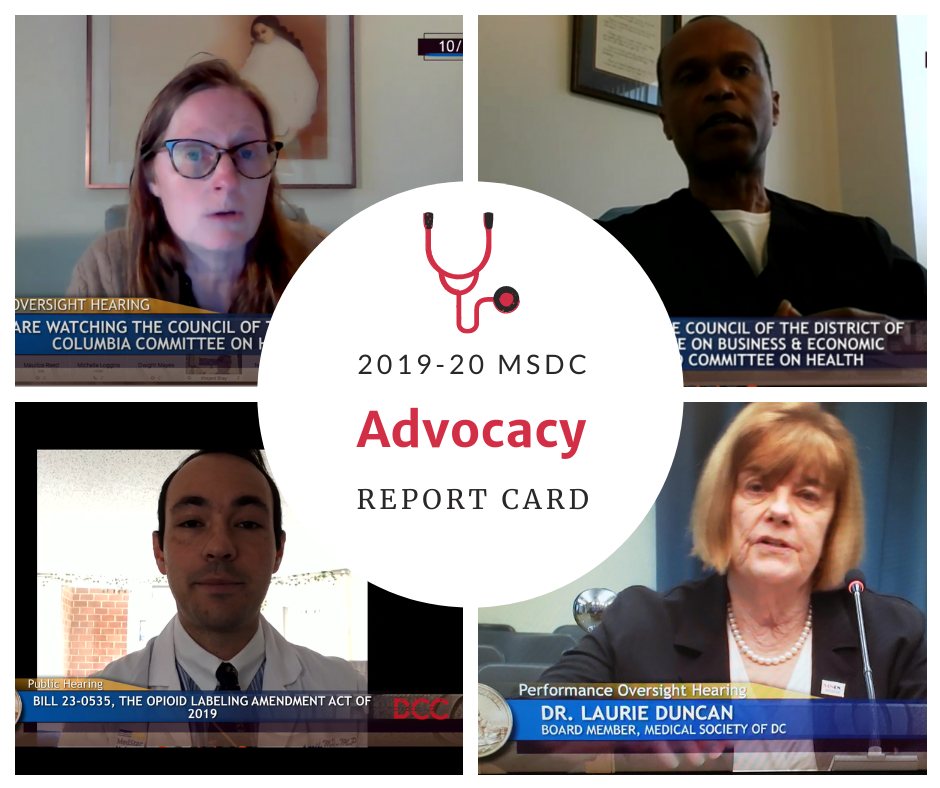Behavioral Health

Behavioral health is a major public health issue in the District of Columbia. Sadly, many of the legislative and regulatory initiatives around behavioral health are tied to other public health concerns, such as opioid addiction, maternal mortality, and health equity.
In partnership with the Washington Psychiatric Society, AMA, and American Psychiatric Association (APA), MSDC works to ensure that patients receive appropriate support for behavioral health issues, that the practice of psychiatry is supported in the District, and that psychiatrists are available to patients in the District.
MSDC was a proud supporter of the Behavioral Health Parity Act of 2017, which enshrined into law that all health plans offered by an insurance carrier meet federal requirements of the Wellstone/Domenici Mental Health Parity and Addiction Equity Act of 2008.
MSDC Statements and Testimony of Behavioral Health Issues
25th Council period information coming soon
MSDC Announces 23rd Council Period Report Card

As MSDC prepares for 2021 and a new Council period, the Society is pleased to share a "report card" on its advocacy activities for the 23rd District Council period (2019-2020).
The two-year period that just ended saw a surge of physician advocacy on important medical issues. COVID-related advocacy dominated the second half of the session, but numerous issues saw physicians testifying and MSDC staff working with lawmakers to protect practices and patients. The past Council session also saw MSDC's new issue priority ranking, policy agenda, and advocacy website.
In addition to encouraging physicians to testify directly to lawmakers, MSDC partnered with other healthcare associations and entities to pass legislation to make the District the best place to practice medicine.
You can see a brief summary of the advocacy report card here and the full report card here, but some areas of success of the physician community include:
- Permitting reimbursement for audio-only telemedicine
- Allowing for patients to receive FDA approved biosimilar drugs
- Prohibiting retribution from employers for physicians practicing reproductive health medicine
- Expanding insurance coverage requirements for newborns, parents, and pregnant women
- Limiting out-of-pocket costs of insulin for patients
- Defeating three different content-specific CME requirements
In addition to working on issue-specific legislation, MSDC members and leaders testified on the following issues:
- Protecting independent practices in underserved medical areas
- Providing support for independent physician practices during COVID-19
- Promoting physician wellbeing and addiction programs, and not unduly punishing physicians suffering from burnout or addiction
In 2021, MSDC will unveil an expanded, engaging advocacy program that will assist physicians in advocating on issues important to them, as well as equipping them to speak out on these issues. Keep an eye on our website for more information.
Sample of Legislation MSDC is Tracking in Behavioral Health
(see the whole list of bills here)
What does it do? The bill requires licensed health providers to complete 2 hours of CME on suicide prevention, assessment, and screening.
MSDC position: MSDC opposes the bill as written as the language does not encourage physician wellbeing or sufficient awareness of suicide prevention.
Current status: The bill had a hearing with the Committee on Health on June 10.

Leave a comment